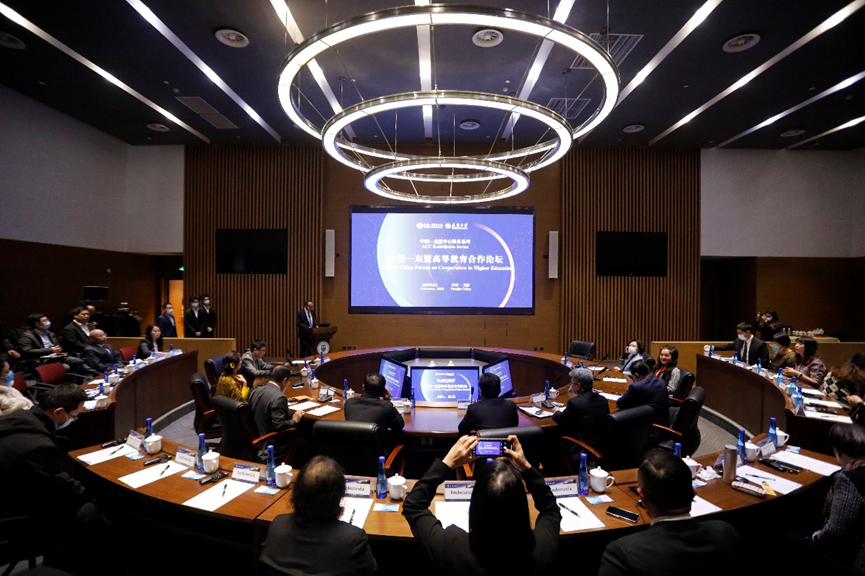
Participants exchanges views at ASEAN-China Forum on Cooperation in Higher Education. (PHOTO: Tianjin University)
By?Staff?Reporters
The ASEAN-China Forum on Cooperation in Higher Education, co-organized by Tianjin University (TJU) and the ASEAN-China Center (ACC), was held recently.
Representatives from China, Indonesia, Malaysia and Thailand shared their views on higher education cooperation between China and ASEAN countries at the forum.
Shi Zhongjun, ACC secretary-general, emphasized that higher education plays an important role in regional development. He listed four areas that educators and diplomats can work on to better shape the future of higher education, including strengthening the exchanges of policymakers, providing services and guidance to young people pursuing cross-border education, promoting applications of digital technology, and strengthening the overall design of higher education and industry integration.
Raja Nushirwan Bin Zainal Abidin, ambassador of Malaysia to China, expressed his support for ACNET-EngTech as a platform to advance cooperation between Malaysian and Chinese universities, while calling for sharing of innovation and teaching resources.
Thailand looks forward to deepening cooperation in education and research, particularly in fields that align with Thailand's development strategies, such as the Bio-Circular-Green (BCG) Economy Model, said Arthayudh Srisamoot, ambassador of Thailand to China.
Li Xin, deputy director-general of the Department of Foreign Expert Services, Ministry of Science and Technology, introduced innovation and entrepreneurship policies regarding global experts working and living in China. He encouraged young experts to establish cooperative relations with China through exchange programs and platforms.
In response to the Belt and Road Initiative, TJU will continue to deepen talent cultivation cooperation with ASEAN countries through ACNET-EngTech, and make more contributions to addressing global challenges and building a community with a shared future for mankind, said Hu Wenping, executive vice president of TJU.
Source: Tianjin University
The trio will conduct a series of experiments in fields such as life science, fluid physics, combustion science and materials science. Notably, this is the first time that fruit flies have been taken on a Chinese space mission as experimental subjects. What made scientists choose fruit flies? What experiment will they undergo?
